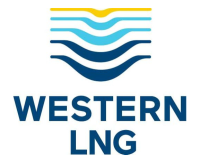Turning Olympic Opportunity into Economic Success
Remarks to the CCCJ, June 1, 2006
I am pleased to be here on behalf of the British Columbia government. Right now in British Columbia, the economy is developing at a phenomenal rate. In fact, we have one of the fastest growing, best performing economies in Canada (and in fact North America). While we have experienced many economic successes, our government is not sitting still. We have developed a series of five important goals that we intend to meet over the coming decade, in the lead-up to, and beyond, the 2010 Winter Olympic and Paralympic Games, which we have the good fortune to host.
These goals are about building a better future for all British Columbians, whether it is in terms of social programs or economic expansion. And as we look forward to building that bright future, we're looking to our partners right here in Tokyo. We are looking to the growing economies of Asia for new and expanding opportunities. And we are looking to businesses and individuals like you, who have the connections here and in Canada.
In British Columbia, we see our ties to Japan as especially significant. Japan is a critical trading partner for our province, with the second largest market for B.C. products after the United States. We have long recognized that our province's future is linked to Japan and the Asia Pacific. Our natural location, at the intersection of the world's two economic power blocks, Asia and North America, puts us in a strategic gateway position.
We are home to the closest ports in North America to Asia. Sending goods through the Port of Prince Rupert; in northern British Columbia for example, will allow goods to get to market in North America two-and-a-half days faster than if they were to shipped through the port of Los Angeles (at Long Beach), which is why we're making key investments in this port to ensure we're able to avoid bottlenecks and keep trade flowing smoothly.
We are continuing to make upgrades to our provincial infrastructure to ensure the continuous movement of goods and to help meet the growing demand through our Gateway Strategy. Our federal government has made a $590-million "down payment" commitment for the Pacific Gateway initiative. By working together, we are helping to ease congestion of not only our sea ports, like Prince Rupert, but also the road, rail, border and air networks that connect our ports to markets throughout North America.
To ensure we maximize our advantages, our government has appointed an Asia-Pacific Trade Council to serve as an advisory group to help to guide commerce opportunities here and back in British Columbia. A key element of the Council's work in Asia involves the establishment of a Japan Market Advisory Group. This group brings together 17 individuals across a range of sectors, to help set out a long-term vision for B.C. in Japan, identifying opportunities and challenges for investment and trade.
These leaders from industry and academia met in April and will be providing a report to the Trade Council this fall outlining how we can strengthen our commercial ties right here. I'm certainly looking forward to working with the Asia Pacific Trade Council and the Japan Market Advisory Group as we continue to build the important relationship we enjoy with Japan.
And I look forward to hearing from you this afternoon. I hope to learn from you what we need to do as a province and how we can continue to strengthen our ties. Quite frankly, you're the experts you're doing business in both countries. You know what works and what doesn't. If you have thoughts or suggestions I would be very interested to hear them.
As I mentioned earlier, in 2010, British Columbia will host the Winter Olympic and Paralympic Games. The Games will bring with them benefits and legacies that will last decades. Just as many visitors came to Japan for the 1998 Winter Games, British Columbia also anticipates a wave of increased tourism to the province leading up to, and beyond, the 2010 Games. And I would like to extend a personal invitation for all of you to join us in 2010.
The Winter Games will be a wonderful opportunity for hundreds of thousands of people to witness the skill and determination of thousands of top-flight winter athletes. But as the spotlight on the Olympics grows the opportunities for individual success and economic prosperity will grow with it, too. The government's job is to make the most of those opportunities. And we've been looking internationally to take full advantage of those opportunities.
We see the 2010 Winter Games as our chance to accelerate economic development throughout the province, and to market our advantages and strong business sense to the world. And not just to those who attend the Games in person, but the literally hundreds of millions of people worldwide who will tune in by TV and the Internet.
I believe however that the Province's future will be shaped by the Asia-Pacific region. And while B.C.'s future is bright, there is still work to do. By forging greater ties between Japan and British Columbia, we are working together towards the same goals:
To improve the quality of life for our residents;
to seek out new opportunities to promote trade and investment opportunities that will benefit economies on both sides of the Pacific;
and that makes doing business between Japan and B.C. less complex;
Building a common understanding of the importance of the Pacific Gateway is critical to our success. It is why visits between our two countries now and in the future are essential and we hope they continue. These are exciting times for British Columbia, for Japan, and for the entire Asia-Pacific region. We know we need to prepare for a prosperous future, we know we need to work together.
Thank you very much.



























